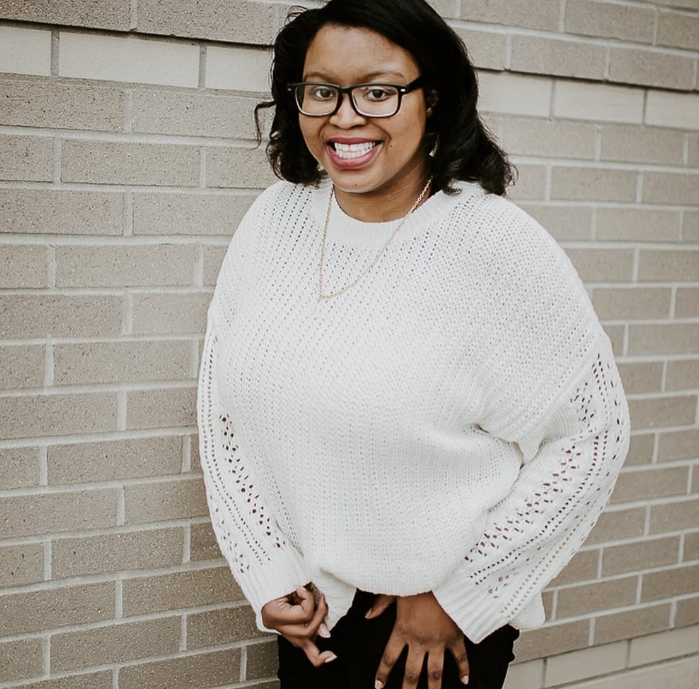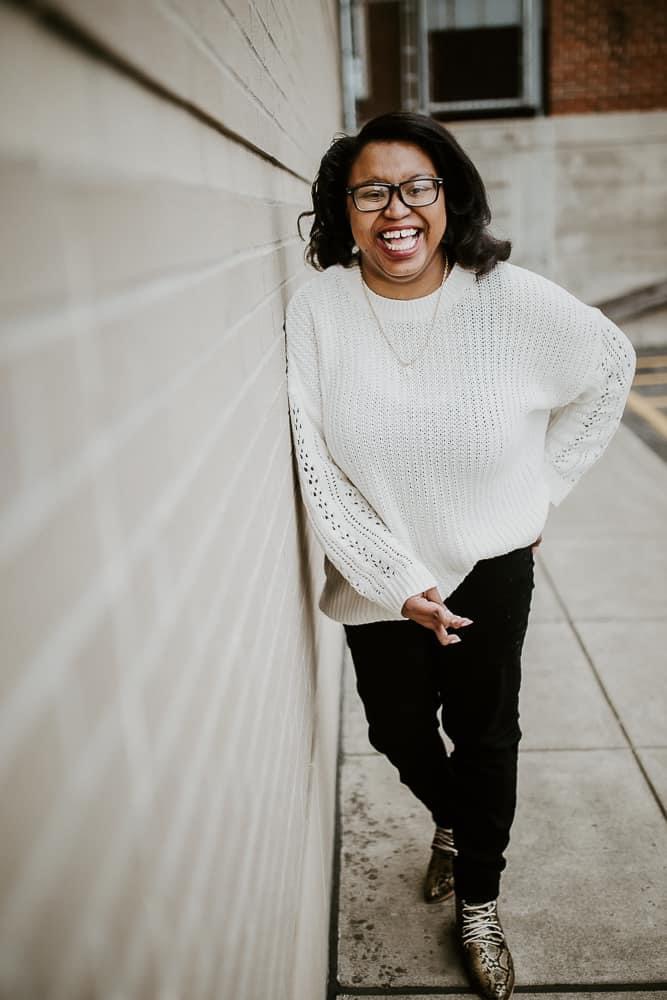My Mental Health and Me: My Journey to Finding Words Again
by Blog Writers

Photo of Keah by Grayley’s Moon.
By Keah Brown
My journey as a writer began when I was eight years old. I sat on a twin-sized bed in my room curled up with a green college-ruled notebook whose cover read, “Keep Out! Property of Keah Brown.” The contents ranged from poetry to songs and short stories — poorly written, I must admit, but necessary for my growth nevertheless. Inside this notebook were hopes and dreams I remain eager to fulfil and see come to fruition. I let every emotion, feeling, and thought I had onto the page. The notebook was half diary, half creativity, and when inspiration struck, there it was under my white antique dresser, the best hiding spot I could think of, waiting for me. My love for the written word came early because my love for books and reading began early. In fact, one of my fondest memories of my childhood was reading the romance novels my aunt took out from the library when she was done reading them. I fell into the worlds of Sidney Sheldon, Nora Roberts, James Patterson, and Jude Deveraux long before I understood the entirety of what I was reading. In their worlds, the adventures were my respite, the chance to focus on the worries, realities, and experiences of others while pretending my own did not exist.
I was an anxious child, in secret of course, always worrying about which person I loved, I would lose. I began spending my nights pleading with the universe to keep them safe, happy, and alive. On top of the worry surrounding losing my loved ones, I began to worry about what I believed was my inherent role as a burden to my family and friends because of my cerebral palsy. Disabled people are taught by society at large that our needs, however wide-ranging they might be, are enough to warrant a resentment that can lead to mistreatment and sometimes, in most horrific cases, death. So I did my best to make myself small. At night, I begged God to make me “normal” and, despite the unyielding love from my family and friends, I began to hate myself and resent that my prayers for normalcy were going unanswered. I was an anxious child who became an anxious adult who glommed onto the idea that my body made me unlovable — and ran with it. My first published pieces as a writer basked in my resentment and discomfort for my body, waxing poetic about how hard life was as a disabled person. I started therapy not long after (thank God) and realized what a disservice I had done to and for myself and the community.
Alongside therapy and saying four things that I like about myself, I began to love myself and my life changed. I started believing more was possible for me and listening when my loved ones told me that I was not a burden, and anyone who treated me as such was not worth my time or energy.
After a viral hashtag and three books, I find myself unable to create. As a person who learned to traffic in hope and who has always had a special connection with the written word, the fact that I am unable to get past the ideas stage is more than disheartening. There is nothing like seeing the thing that you have created in stores and knowing it will find a home with readers who need it. I miss that.

Photo of Keah by Greyley’s Moon.
The truth is, I don’t know who I am without writing and I don’t want to. When someone reaches a level of visibility that three published books provide, despite the fact that they aren’t award-winning, I think there is a consensus that life is great, and my issues are few and far between. However, that couldn’t be further from the truth. I am well aware that living through an ongoing pandemic, climate change, and a world on fire — personally and culturally — has something to do with it, but now, when I look at a blank document, my anxiety spikes instead of the usual rush of adrenaline.
At the tail end of last year, after I was done promoting the publication of The Secret Summer Promise, my third book, I spent my days in bed crying and unable to get up. In the off chance that I did find my way back to my laptop, I spent it letting tears line my keyboard in place of words. I was withering away. The once vibrant, eager, boisterous version of me was now the depressed, exhausted, lonely reality of me. After years of pretending to be fine and trying to push through, I knew then, after months of trying to make a middle-grade novel work, that I needed more help than monthly therapy sessions could provide. With shaking hands and a tear-riddled voice, I went to my primary care physician and told her I needed to be put on depression and anxiety meds. They were not the easy fix I was hoping for. At almost eleven months into the year, I’ve adjusted the brand name and milligram of my med a few times. I just now feel like I can function and have started dipping my toes into writing poetry again. I don’t believe that everything is better now, but I trust myself enough to be honest about what I need so that I can show up long enough to attempt to create another long piece of work. Writing books has been my dream since I was eight years old. My name has been on a book spine three times, and my hope is to write one million more books across genre and about messy, complicated, but lovable characters who are just trying to figure themselves out and where they belong in the world. In order to do that, though, I have to take care of myself and my wellbeing so that I can show up for the stories I have always been so eager to tell.
Keah Brown is a writer, journalist, and disability rights advocate known for her impactful work on the intersection of disability, race, and self-love. As the creator of the viral hashtag #DisabledAndCute, Brown promotes body positivity and self-acceptance for disabled people. Her works include The Pretty One, The Secret Summer Promise, and Sam’s Super Seats.






